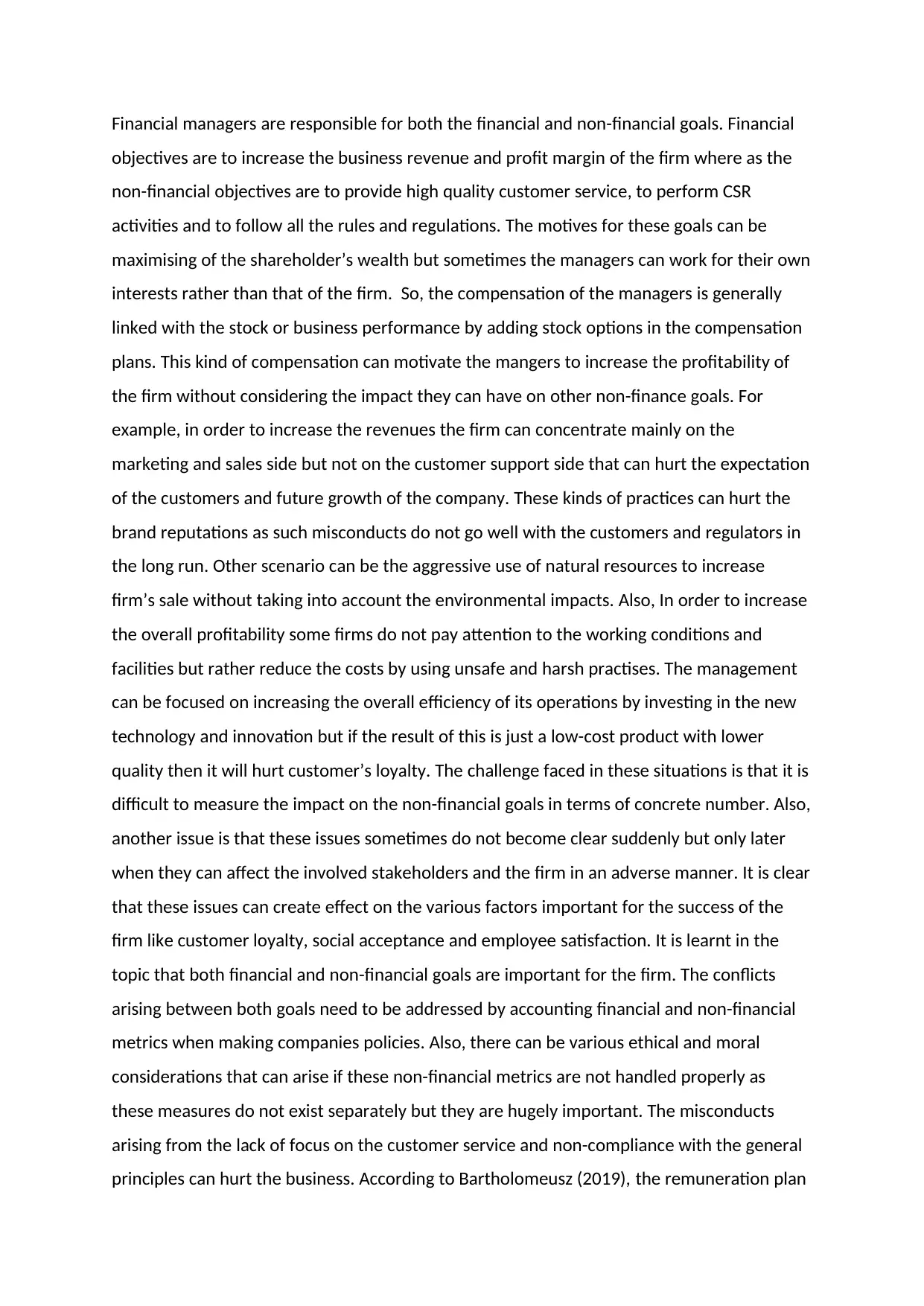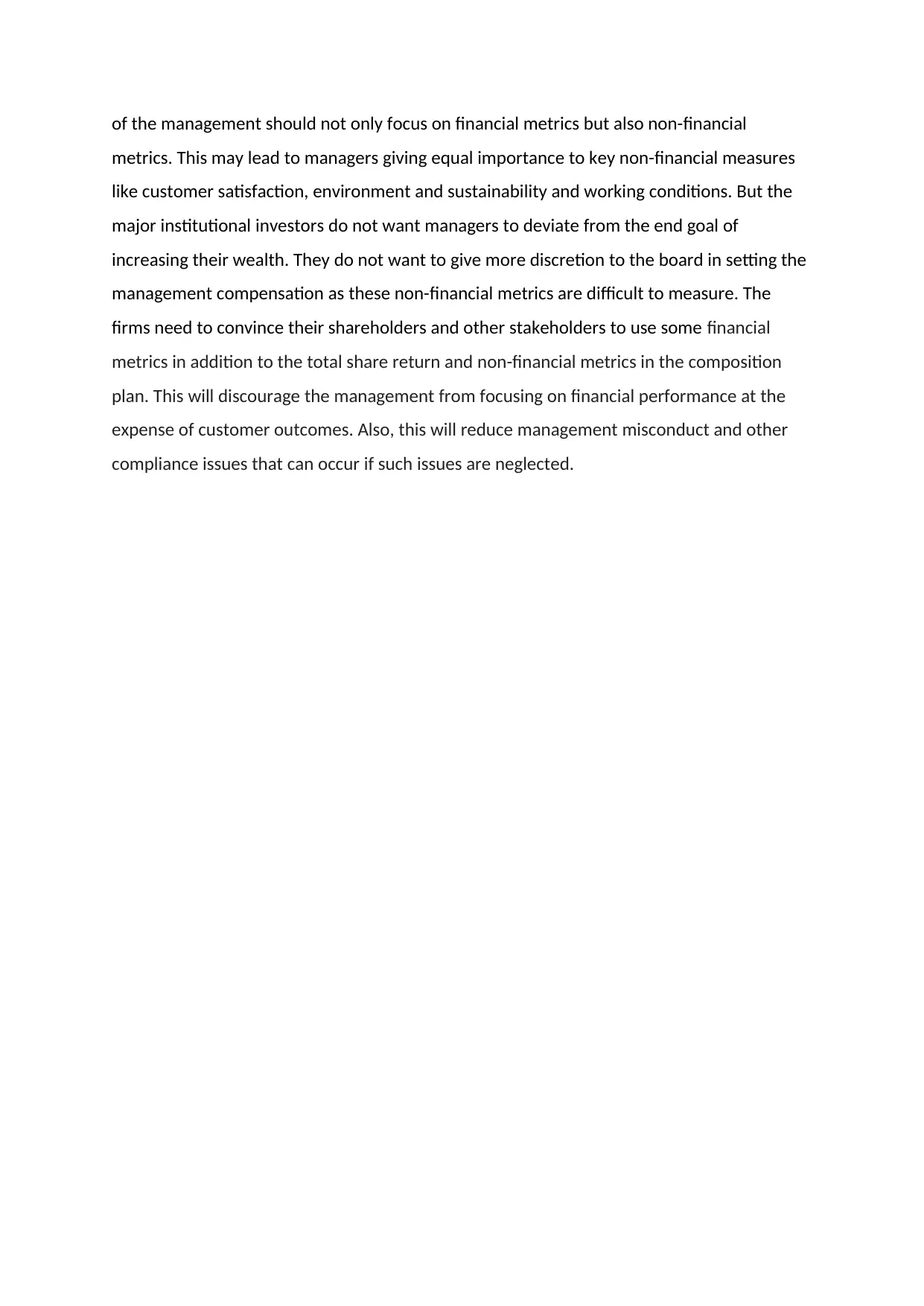Financial Goals and Managerial Compensation in Business: AIB Report
VerifiedAdded on 2022/10/18
|2
|647
|23
Report
AI Summary
This report delves into the critical conflict between financial and non-financial goals within a business context, highlighting the challenges that arise when these objectives are not properly aligned. It examines how managerial compensation structures, often tied to financial metrics, can inadvertently incentivize actions that undermine customer service, ethical conduct, and long-term sustainability. The report discusses the potential for misconduct and non-compliance when non-financial goals are neglected and emphasizes the importance of incorporating non-financial metrics, such as customer satisfaction and environmental impact, into compensation plans to promote a more balanced approach. It references the views of institutional investors, and the need for firms to convince shareholders of the importance of non-financial metrics in addition to financial metrics to promote a more balanced approach. The report concludes that a holistic approach, considering both financial and non-financial factors, is essential for sustained success and ethical business practices, advocating for a balanced approach to managerial compensation that considers both financial and non-financial metrics to mitigate risks and promote overall business health and stakeholder value.
1 out of 2








![[object Object]](/_next/static/media/star-bottom.7253800d.svg)